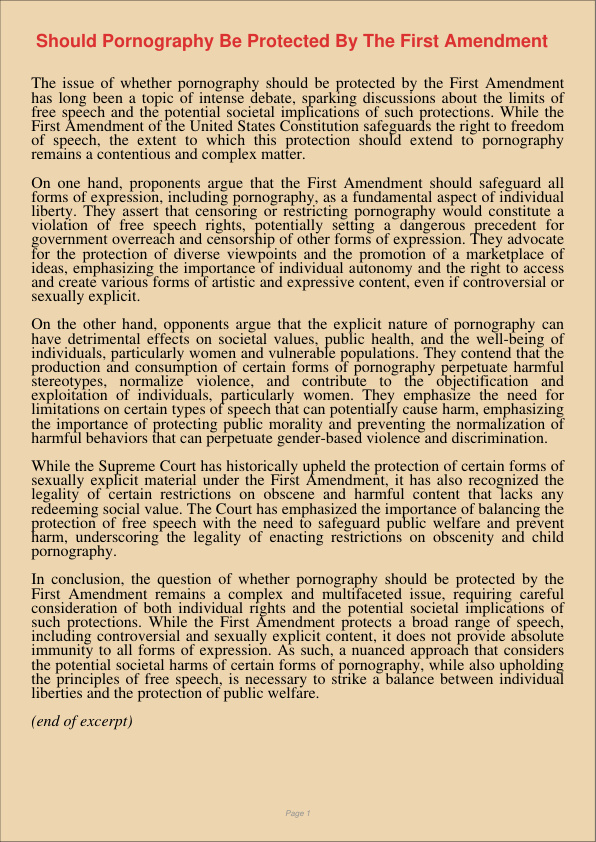Should Pornography Be Protected By The First Amendment
Dec 31, 2023
first amendment
protected
Finance & Accounting
Literature
The issue of whether pornography should be protected by the First Amendment has long been a topic of intense debate, sparking discussions about the limits of free speech and the potential societal implications of such protections. While the First Amendment of the United States Constitution safeguards the right to freedom of speech, the extent to which this protection should extend to pornography remains a contentious and complex matter.
On one hand, proponents argue that the First Amendment should safeguard all forms of expression, including pornography, as a fundamental aspect of individual liberty. They assert that censoring or restricting pornography would constitute a violation of free speech rights, potentially setting a dangerous precedent for government overreach and censorship of other forms of expression. They advocate for the protection of diverse viewpoints and the promotion of a marketplace of ideas, emphasizing the importance of individual autonomy and the right to access and create various forms of artistic and expressive content, even if controversial or sexually explicit.
On the other hand, opponents argue that the explicit nature of pornography can have detrimental effects on societal values, public health, and the well-being of individuals, particularly women and vulnerable populations. They contend that the production and consumption of certain forms of pornography perpetuate harmful stereotypes, normalize violence, and contribute to the objectification and exploitation of individuals, particularly women. They emphasize the need for limitations on certain types of speech that can potentially cause harm, emphasizing the importance of protecting public morality and preventing the normalization of harmful behaviors that can perpetuate gender-based violence and discrimination.
While the Supreme Court has historically upheld the protection of certain forms of sexually explicit material under the First Amendment, it has also recognized the legality of certain restrictions on obscene and harmful content that lacks any redeeming social value. The Court has emphasized the importance of balancing the protection of free speech with the need to safeguard public welfare and prevent harm, underscoring the legality of enacting restrictions on obscenity and child pornography.
In conclusion, the question of whether pornography should be protected by the First Amendment remains a complex and multifaceted issue, requiring careful consideration of both individual rights and the potential societal implications of such protections. While the First Amendment protects a broad range of speech, including controversial and sexually explicit content, it does not provide absolute immunity to all forms of expression. As such, a nuanced approach that considers the potential societal harms of certain forms of pornography, while also upholding the principles of free speech, is necessary to strike a balance between individual liberties and the protection of public welfare.
